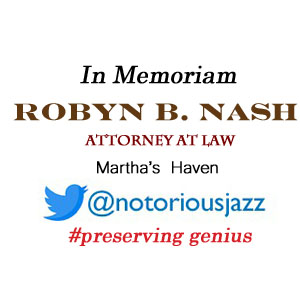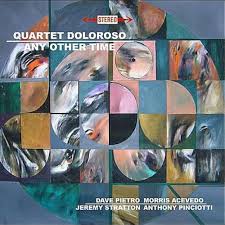
Daily Dose Of Jazz…
Morris Acevedo was born April 8, 1966 in Texas and started playing guitar in 6th grade. During his high school years he mostly played progressive Rock and Jazz Fusion in high school. After graduating he became a music major at North Texas State University and studied Jazz Performance and Music Education but a move to Boston, Massachusetts set his course to transfer to Berklee College of Music, earning a degree in Jazz Composition and Arranging. After earning his bachelor degree, he played full time in professional bands in Boston, and studied improvisation in New York City with Lee Konitz, Richie Bierach and Jerry Bergonzi before relocating to California in the San Francisco Bay Area.
In addition to his regular jazz and fusion group performances, he became smitten with teaching guitar and improvisation he taught for years in the Bay area. He currently holds the position of music director at Cardinal Newman High School. He has also held positions as the Jazz Guitar and Improvisation at the University of California at Berkeley’s Young Musician’s Program and guitar at his Berklee alma mater during summers.
He has performd with Joshua Redman, Jim Black, Ken Vandermark, the Either Orchestra, the Charlie Kolhase Quintet, organ Trio Be-3, Matt Wilson, Richie Cole’s Alto Madness Orchestra, Dam East, Scott Amendola, among others.
Guitarist and composer of new jazz and electronic ambient music Morris Acevedo, who has twice received a Certificate of Appreciation for Outstanding Service to Jazz, continues to perform, compose and educate.
More Posts: bandleader,composer,educator,guitar,history,instrumental,jazz,music
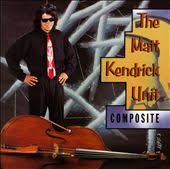
Daily Dose Of Jazz…
Matt Kendrick, was born in Winston-Salem, North Carolina on April 1, 1957 and attended the University of North Carolina School of the Arts. He moved to New York City in 1977 and for four years performed in numerous avant-garde venues. After studying with jazz educator Jerry Coker at the University of Tennessee, and playing in the Knoxville Symphony, he returned home in 1981.
As a composer, he has released to critical acclaim five compact discs, featuring more than forty of his own compositions. He has scored music for three films, leads the Matt Kendrick Unit,and has performed with Marian McPartland, Tierney Sutton, Archie Shepp and Jaki Byard.
He serves on the board of Music Carolina, is the music director for Carolina Music Ways, and is co-artistic director for Music Carolina, a non-profit arts presenting organization. As an educator Kendrick was on the faculty at Wake Forest University for 25 years.
With four decades under his belt, bassist Matt Kendrick continues to compose, perform, and teach.
More Posts: bandleader,bass,composer,history,instrumental,jazz,music
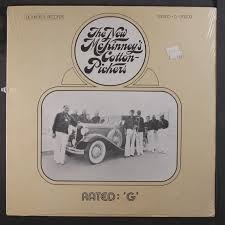
Daily Dose Of Jazz…
Alfred Winters was born March 24, 1931 and raised in New York City, New York. He completed his Bachelors and Masters degrees from Hofstra University and began working professionly since 1957.
He studied with the Metropolitan Opera Orchestra principal trombonist Roger Smith. He went on to play with Bobby Hackett, Gene Krupa, Phil Napolean, Wild Bill Davison, Benny Goodman. Recorded with numerous artists including Gene Krupa and Bobby Hackett.
Relocating in 1966 to the Detroit, Michigan area he performed and recorded with the Austin-Moro Big Band and the New Mckinney’s Cottonpickers as well as local artists like Tom Saunders.
He led his own band beginning in 1988 and performed at numerous jazz festivals including Newport Jazz Festival, Montreaux Jazz Festival and the Sacramento Jazz Jubilee.
More Posts: bandleader,history,instrumental,jazz,music,trombone
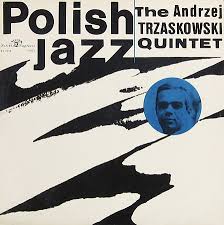
Daily Dose Of Jazz…
Andrzej Trzaskowski was born on March 23, 1933 in Kraków, Poland. He began playing piano at age four and founded his first jazz band, Rhythm Quartet. He attended Jan III Sobieski High School, passed his final exams cum laude, and eventually was admitted to Jagiellonian University where he earned his masters degree with his thesis being on Charlie Parker. Prior to his admittance he earned his living by playing in Kraków, Łódź and Zakopane night clubs.
By 1956 he was performing at jazz festivals and being recognized as the best jazz pianist by a Przekrój poll. From 1958, he played together with Jan Ptaszyn Wróblewski in the band Jazz Believers. The following year Trzaskowski moved permanently to Warsaw, established his own hard bop band, The Wreckers, that drew inspiration from the music of Charlie Parker, Dizzy Gillespie, and Horace Silver. In 1960, the Trzaskowski’s Trio accompanied saxophonist Stan Getz, and they recorded together the album Stan Getz & Andrzej Trzaskowski Trio.
At the end of the 1950s he began working with Polish cinema, arranging and recording music for the film Night Train, composed or created soundtracks for films and appeared on the screen, playing piano in Innocent Sorcerers in 1960 and Feliks Falk’s Był jazz in 1981. Andrzej moved to the United States in 1961 with a new configuration of The Wreckers and toured the country.
The Andrzej Trzaskowski Quintet would go on to perform with Don Ellis, Ted Curson, and in 1963 the Quintet gave concerts in Germany, Italy, Switzerland, Yugoslavia, East Germany and Belgium over the next year. By 1963, he began to move away from bop music towards free jazz.
In the Seventies he performed and recorded at the Polskie Radio Jazz Studio, and became the head of Polish Radio Symphony Orchestra Studio S-1. From 1992 he lectured at the Jazz Department of the State Music School of Warsaw and during the last years of his life he composed almost exclusively for cinema and television. In 1995, he was awarded the Cross of Merit for his artistic career.
Pianist, composer and musicologist Andrzej Trzaskowski, who from the mid-1950s onward was regarded as an authority on syncopated music, died in Warsaw on September 16, 1998, aged 65.
More Posts: bandleader,composer,history,instrumental,jazz,music,piano
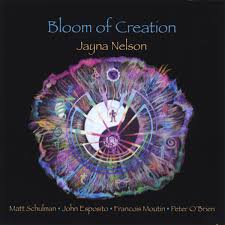
Daily Dose Of Jazz…
Jayna Nelson was born in Lincoln, Nebraska on March 16, 1958. She began to study piano as soon as she could reach the keyboard. At age 9 she began to study the flute as well and by age 17 had won both the Baldwin Junior Keyboard award and the l Music Teachers’ National Association Competition.
Graduated from the University of Toronto in Flute Performance, for the next two years, she served on the faculty at University of Toronto teaching chamber music. There she also premiered a work by Mario Davidovsky, and was principal flutist with the Union College Orchestra, the Wesleyan College Orchestra, Opera Omaha Orchestra and Symphony Canada. In 1983 she attended the Banff Centre Jazz program headed by Dave Holland and studied and performed with Anthony Braxton, Don Thompson, Dave Liebman and John Abercrombie.
A move to New York City in 1989 saw her continuing to work in the classical and jazz genres as a performer, producer, composer, arranger and educator. She designed and implemented integrated arts curriculum for New York area schools and summer camps. She has lectured and given seminars, maintained a private teaching studio for over 20 years and has been a flute technician and consultant for Anthony Braxton, Dave Liebman, Joe Giardullo, Jeanne Baxtresser, Joannie Maddon, Carlos Malta, Hermeto Pascoal, and James Moody.
Nelson has recorded and performed with a host of musicians including Karl Berger, Hilliard Green, Howard Johnson, Silvana Malta, Francois Moutin, Hermeto Pascoal, Sirius String Quartet, Petula Clark, Ingrid Jensen, Marty Morrell, Dave Valentine, and numerous others.
Flutist Jayna Nelson continues to perform, tour, compose, record and educate.
More Posts: arranger,bandleader,composer,educator,flute,history,instrumental,jazz,music,producer


